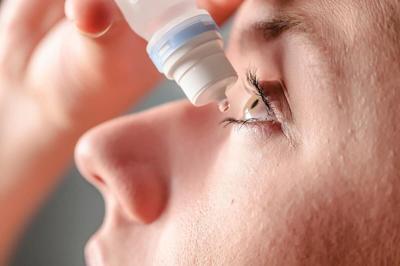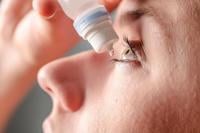Key Takeaways
Dry eyes are a common problem among Americans and Europeans
More than half have regular symptoms of dry eyes, researchers say
However, only around 1 in 5 seek diagnosis or treatment for the condition
MONDAY, Sept. 15, 2025 (HealthDay News) — Many folks are needlessly suffering from dry eyes, a new study says.
More than half of people in the U.S. and Europe struggle with dry eyes, in which their eyes fail to produce enough tears to keep them lubricated, researchers reported today at a meeting of the European Society of Cataract and Refractive Surgeons (ESCRS) in Copenhagen.
However, only 17% of U.S. and 20% of European patients have sought a diagnosis and treatment for the condition, potentially waiting years for professional help, researchers said.
“Many see dry eye as a normal part of aging and something to endure,” researcher Dr. Piotr Woźniak, a refractive surgeon and dry eye specialist at Optegra Eye Clinics in Warsaw, said in a news release.
“As a medical doctor, I find this particularly concerning because a simple eye drop could offer significant relief – but many people aren’t even asking for help,” Wozniak said.
For the study, Wozniak analyzed results from a survey of more than 2,000 U.S. adults in conducted in April 2024.
Dry eyes frequently affected about 50% of Americans, with 80% dealing with symptoms like fatigued, itchy or watery eyes, the U.S. survey found.
However, fewer than 1 in 5 people had gotten a diagnosis from an eye doctor, results show.
Between 35% and 75% of people were very or extremely bothered by dry eyes, but 67% waited six months or more to see an eye care specialist and 31% waited two or more years.
Wozniak found similar results in another survey of more than 5,000 European adults in June 2025.
“We found that 58% of the general population reported experiencing dry eye symptoms, yet only 1 in 5 have received a formal diagnosis from a healthcare provider,” Wozniak said.
Results also showed that 60% of dry eye sufferers waited at least four months before seeking help, and 20% waited more than a year.
Many stopped driving at night (17%), quit wearing makeup (15%) and reduced their use of heat or A/C (15%) due to their dry eye, researchers found.
“These findings highlight the widespread impact of dry eye disease on quality of life, showing a large number of people suffering silently,” Wozniak said.
“We need to educate patients and the public on the causes, consequences and treatment options for dry eyes, as well as the importance of regular eye checks,” he said. “In addition, we must support health care professionals in distinguishing between different types of dry eye and matching treatments appropriately. One person’s ‘dry eye’ can be very different from another’s.”
ESCRS President Dr. Filomena Ribeiro is head of ophthalmology at Hospital Da Lus in Lisbon.
“These findings reveal the true extent of dry eye disease in the general population,” she said after reviewing the study findings.
“It is concerning that such a small proportion of sufferers seek help for the condition, especially as it can make a real difference to the outcomes of ophthalmological surgery and also to their quality of life,” said Ribeira, who was not involved in the study. “Eye and health care professionals need to discuss this with patients when they see them and encourage people to have regular eye care checks.”
The eye health company Bausch + Lomb funded the study.
Findings presented at medical meetings should be considered preliminary until published in a peer-reviewed journal.
More information
The Cleveland Clinic has more about dry eyes.
SOURCE: European Society of Cataract and Refractive Surgeons, news release, Sept. 15, 2025
What This Means For You
People with itching, burning or gritty eyes should consult an eye care professional.















(0) comments
Welcome to the discussion.
Log In
Keep it Clean. Please avoid obscene, vulgar, lewd, racist or sexually-oriented language.
PLEASE TURN OFF YOUR CAPS LOCK.
Don't Threaten. Threats of harming another person will not be tolerated.
Be Truthful. Don't knowingly lie about anyone or anything.
Be Nice. No racism, sexism or any sort of -ism that is degrading to another person.
Be Proactive. Use the 'Report' link on each comment to let us know of abusive posts.
Share with Us. We'd love to hear eyewitness accounts, the history behind an article.